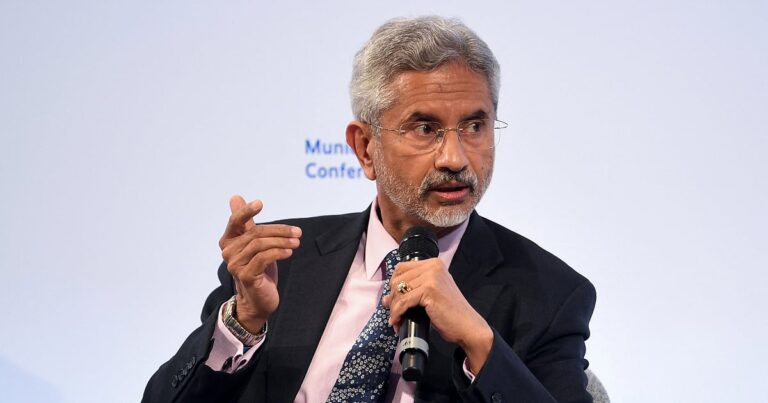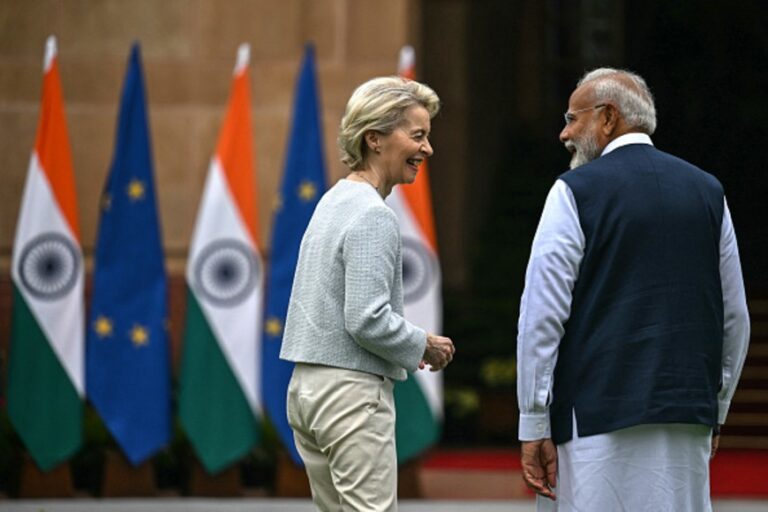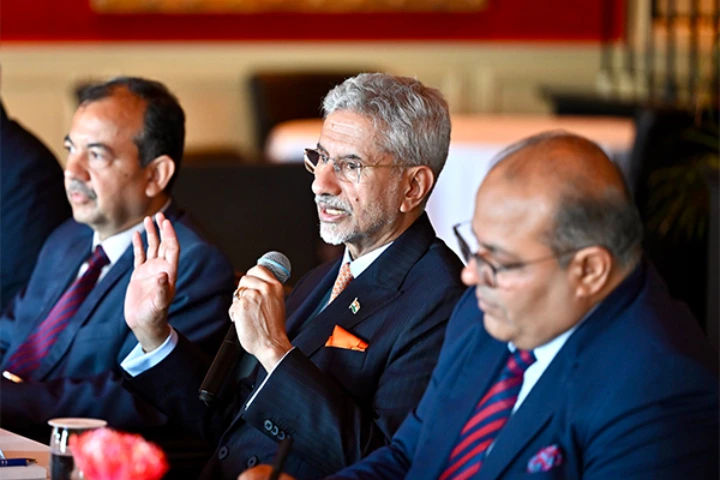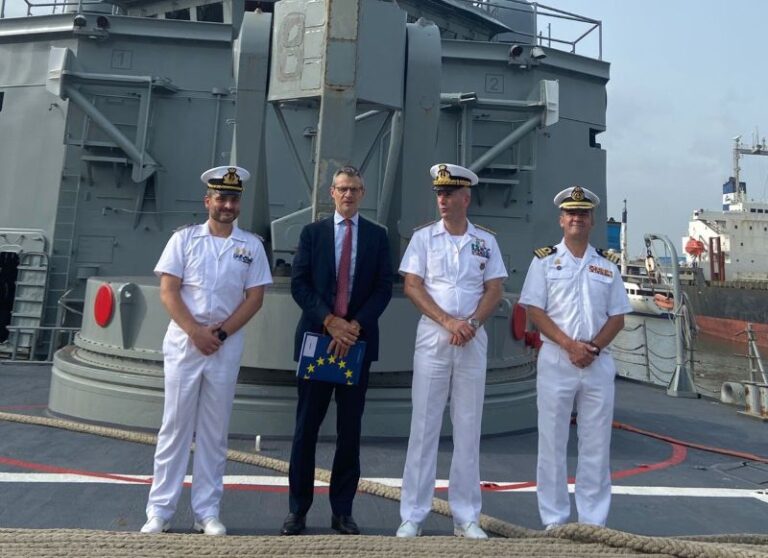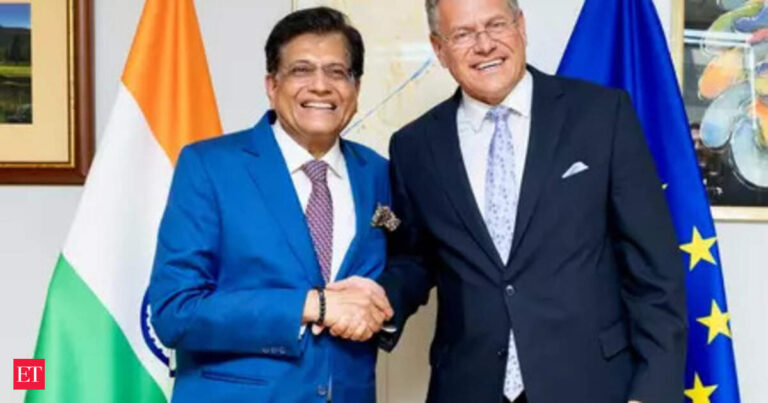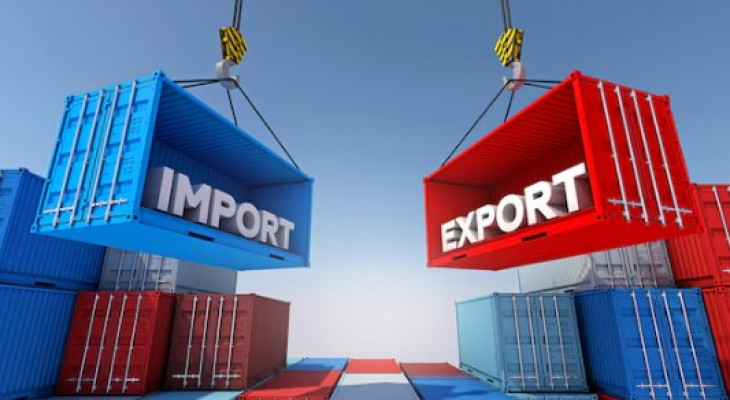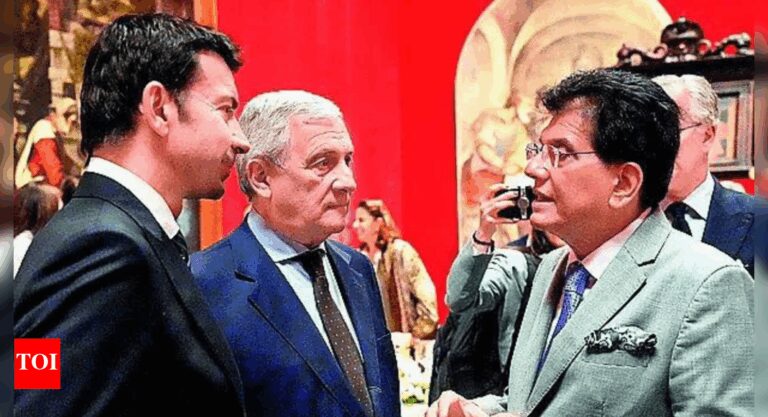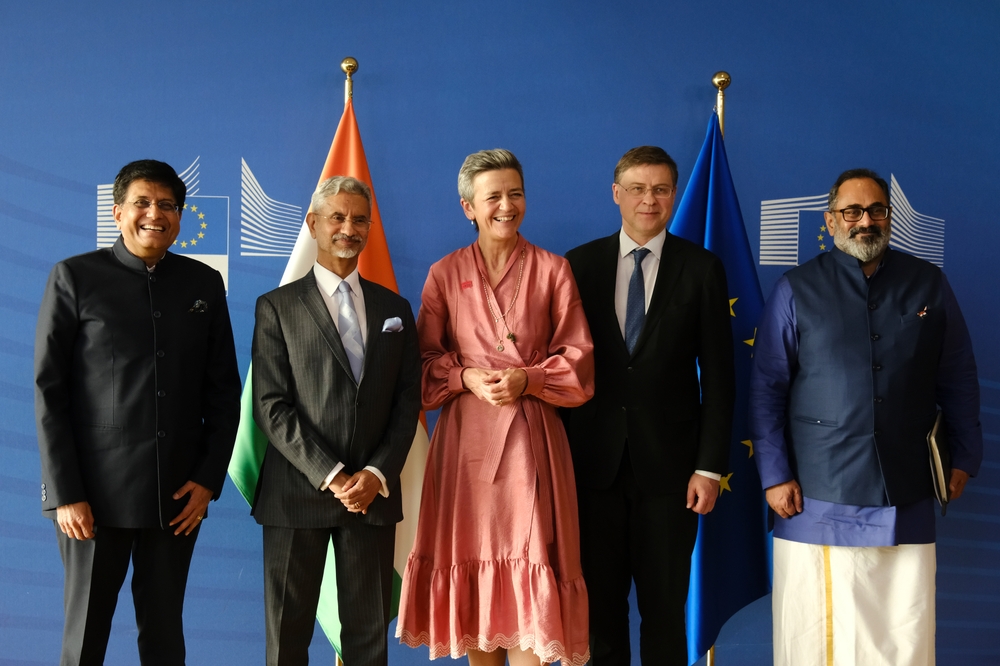
India is seeking greater engagement with the European Union at a time when the EU is increasing its presence in the Indo-Pacific. But India’s quest for harmony takes place in a complex context involving China and Russia.
Euractiv’s Xhoi Zajmi spoke with His Excellency Mr. Saurabh Kumar, India’s Ambassador to Belgium, Luxembourg and the EU, to discuss the victories and challenges facing this revived partnership.
XZ: 2024 marks the 20thth anniversary of the strategic partnership between India and the EU. In your opinion, what is the most important achievement(s) of this partnership, as well as areas where more can be done?
Sask. : India was one of the first countries to establish relations, as early as 1962, with what was then the European Economic Community. Since then, this relationship has grown and deepened. In 1994, a cooperation agreement was signed which notably provided for regular political dialogue. During the fifth India-EU summit in The Hague in 2004, the relationship was upgraded to a strategic partnership.
As India grew – it is now the world’s fifth largest economy and is expected to become the third – the mutual interests of India and the EU, its commitments to democracy, the rule of law and a rules-based international order have deepened our ties.
Today, our cooperation spans a broad spectrum, from politics and security to trade and economics; from green and digital transitions to critical minerals and emerging technologies; from space to nuclear power; from health to agriculture; cultural education; and much more.
So, I would consider depth and resilience to be important achievements, but also the broadening of the relationship from a primarily economic relationship to a more holistic relationship.
Of course, we look forward to working with the EU across the spectrum as it evolves. Today, both sides approach their relations taking into account geopolitical realities and our long-term interests.
XZ: On the occasion of Europe Day, Indian Foreign Minister S. Jaishankar described India-EU relations as stronger than ever, saying that India and the EU are “natural partners in a multipolar world”. What does this natural partnership involve?
Sask. : The participation of Foreign Minister Jaishankar in the Europe Day celebrations in New Delhi demonstrates the importance we attach to this relationship. His statement that India and the EU are natural partners in a multipolar world reflects how we place the relationship in the global context.
My feeling is that the EU is (also) aware of the importance of this relationship, even if it tends to be masked by the immediacy of other challenges.
The natural partnership implies a community of interests and geopolitical convergence. The latest India-EU summit set out an ambitious roadmap for our strategic partnership; the next one, which will take place next year, will largely rely on this point.
There is a lot to do. For example, in recent years we have witnessed the vulnerabilities of global supply chains. There is a need for more resilient and non-geographically concentrated supply chains, and India can be an important partner in this regard.
Challenges such as terrorism, climate change, energy transition, trusted technology partnerships, migration, reformed multilateralism and many others require our common efforts and cooperation. Furthermore, as Europe increases its involvement in the Indo-Pacific region, it would bring us closer together as partners.
XZ: How do you justify this natural partnership in the context of the continuing close relations between India and Russia and Prime Minister Modi’s recent visit to the country?
Sask. : Our natural partnership with the EU is not exclusionist. We have a historic relationship with Russia (former Soviet Union). Foreign policy is conducted keeping national interests in mind and India does the same.
We have been adamant that we are not in an era of war and that the conflict must be resolved through dialogue and diplomacy. We kept communication channels open with Ukraine and meetings took place at the leadership level with President (Volodymyr) Zelenskyy. Foreign Minister (Dmytro) Kuleba was in New Delhi recently.
There are geopolitical interests in our engagement with Russia. I have interacted with many people in Brussels who share India’s point of view.
XZ: What about India’s relations with China?
Sask. : Our relations with China are complex. The Galwan incident on the India-China border in mid-2020 was a serious setback for our relations.
Our channels of communication, both diplomatic and military, are open and business cannot continue as usual until the issues arising from Chinese actions in our border areas are resolved.
XZ: Back to the EU and India. The European Parliament recognizes that bilateral relations have not yet reached their potential. The rapprochement mainly focused on the conclusion of a free trade agreement (FTA).
Do you see a resumption of negotiations since the elections on both sides are now over? How can we harness the full potential of the India-EU dynamic?
Sask. : What is important is to progress the relationship over time. As I mentioned, we have done well in this regard, but there is still much to do. This is what the highest levels of political leadership are hearing.
The year has seen elections in India and Europe, and the EU transition cycle is underway. We hope that engagement will resume as soon as the transition is complete; in fact, preparatory work for the next Summit is already underway.
Our other commitments also continued, such as FTA negotiations, dialogues in areas such as defense and security, maritime, disarmament, etc. and high-level meetings on the sidelines of international events. But yes, we hope things speed up and we are preparing for it.
XZ: What exactly would the FTA mean for India? Despite their absence, trade between the parties continued and last year the EU overtook the United States to become India’s largest trading partner.
How will the FTA benefit India and how do you see the two sides converging?
Sask. : We have had eight rounds of FTA negotiations since 2022, and the ninth is scheduled for September. FTA negotiations in general are not easy, and the India-EU negotiations were no different. The important point is that there is strong political will on both sides to conclude a comprehensive and balanced FTA.
Trade between India and the EU is indeed experiencing robust growth and amounted to around €135 billion for the 2023-24 financial year.
But the FTA is not just about expanding trade, which is important, but also about economic security and supply chain resilience; it is about growth, but also about mitigating risks linked to economic dependencies and strategic vulnerabilities; they are trusted partners for business, investment and technology collaborations.
In short, the FTA has a strategic and political dimension. India and the EU are aware of this and are determined to work towards it.
I can also add that India is the fastest growing large economy in the world, with projections of sustained growth over the coming decades. It has 522 million active people with a median age of 29 years.
India’s GDP growth rate in 2023-24 was 8.2%. By 2047, it is expected to reach a $32 trillion economy. It is also one of the fast-growing markets that provides its partners with sustained growth in the short and long term. There is therefore a strong community of interests.
XZ: The second round of the EU-India Trade and Technology Council (TTC) is also planned. After the first meeting in May last year, what results do you expect from this next meeting?
Sask. : The India-EU TTC is an important mechanism of our partnership. The EU only has this partnership with the United States and India. In this context, we participate in three working groups related to i) strategic technologies, digital governance and digital connectivity; ii) green and clean energy technologies; and (iii) resilient value chains, trade and investments.
Within these areas, we work in areas such as quantum and high performance computing, artificial intelligence, semiconductors, digital skills and digital public infrastructure; battery technologies, marine plastic waste, waste transformed into hydrogen; and resilient value chains, market access and FDI screening and multilateral trade issues. A semiconductor memorandum of understanding was signed in November 2023.
XZ: There has been a new European Parliament since the June elections, and a new college of commissioners will also be established soon. How do you see continued interaction with India after these changes?
Sask. : Let me congratulate the EU on its successful elections and the parliamentary support given to the President of the Commission.
We are waiting for the EU transition round to be completed. In the meantime, we will conduct our bilateral dialogues such as consultations on foreign policy and security, strategic partnership review meetings and in areas such as energy, climate and environment.
The next TTC meeting is also scheduled and FTA negotiations are underway. All this would lead to the next Summit.
(By Xhoi Zajmi I Edited by Brian Maguire | Euractiv Advocacy Lab)
